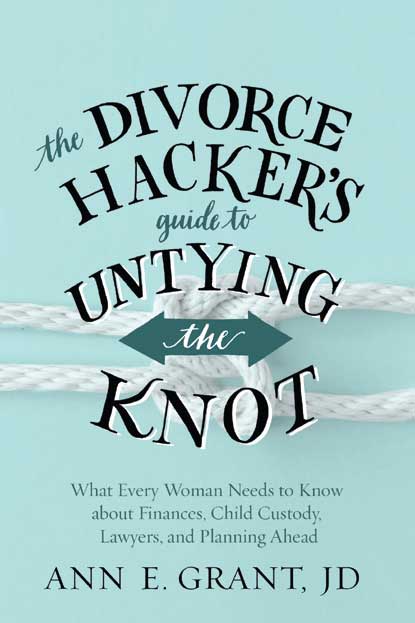Many studies show that, as you might expect and may fear, children of divorced parents can develop into adults with lower self-esteem and more depression and anxiety compared to children who were raised by both parents. However, what studies also show, and what I emphasize with my clients, is that children are not typically damaged by divorce in and of itself. Rather, how parents handle the divorce, their conflicts, and their own emotions are what make the difference in how well children handle this difficult situation. Or as I like to say: Divorce is not damaging to children, conflict is.
No matter their age, a child’s primary need is to feel safe and loved. Children struggle during divorce when they feel their security threatened. Of course, a divorce is upsetting for everyone, particularly for immediate family; to a degree, this can’t be avoided. But similar to how you set the tone of a divorce by the way you notify your spouse, you set the tone for your children by the way that you inform them. I discuss this further in chapter 3, “Be the Grown-Up — Protect Your Children from Conflict” (page 76). Here I focus mostly on the first announcement.
First, what you say to your children and how you explain the divorce is up to you, and what you decide will no doubt depend on the age of your children, their maturity levels, and the particular circumstances of your divorce. However, I always advise that clients keep announcements and explanations as simple and succinct as possible. Avoid any information that children may not be equipped to handle, and avoid exhibiting conflict in front of them. Typically, the actual details of a separation are almost always emotionally charged, so shield your children from these.
I recommend that my clients tell their children that they are divorcing whenever they have made the definitive decision to do so, which is usually when they retain me. Don’t put this off, and don’t jump the gun. I’ve learned that a good way to present this decision is by saying, “We both love you very much, and we are going to be living apart.” For young kids, this is often all that needs to be said, followed by showing them that you do indeed love them and that you are still a family. At first, avoid discussing the details of how this will work, especially if much still remains to be sorted out. Uncertainty causes anxiety, and one of your main goals during the divorce is to try to minimize anxiety for your kids. The most important thing they need to know is that they are loved (by both parents) and that they are safe.
You may feel tempted to say more than this. Particularly if you talk to your children without your husband present, you may want to explain yourself, seek sympathy, or blame your husband for the divorce. However, any bad things you have to say about your spouse can be emotionally turbulent for your children. For example, women often feel the need to talk to their children about their spouse’s extramarital infidelity. Although it is tempting to bad-mouth your ex and his paramour to your kids, nothing good can come from this. This only puts children in the middle and forces them to choose allegiances. As I discuss in chapter 3, this can be incredibly damaging to children. Talk to your therapist or girlfriends about your spouse’s extramarital activities, not your kids.
If, or when, your children ask you about the reasons for the divorce, answer them in a way that does not judge or criticize the other parent. Older children may be able to handle, and may appreciate being told, more details, but only when you can discuss the situation free of anger and blame. Remember, you don’t have to explain everything to children right away. If you are still coming to terms with what happened, then you can’t expect children to process that information in constructive, healthy ways, either. If children ask to know more, and you don’t want to discuss it, perhaps reassure them that the reason you aren’t discussing certain things is because they have nothing to do with them. As I discuss later, children will often blame themselves for a divorce, so make sure to emphasize that any conflict or negative emotions aren’t because of them.
When a therapist colleague was asked by her young son why she was divorcing his father, she responded by saying, “Mommy and Daddy both love you, and we want you to be happy, and we want to be happy. We aren’t happy in our marriage, and so we are going to change things for the better.” Her son responded, “Mommy, I want you and Daddy to be happy.” In other words, emphasize the positive.
As my father used to say when I was going through my separation and divorce, “The kids don’t need to know how the sausage gets made.” Remember this quote and keep any answers to questions from children short and sweet. Be honest, but spare them the details. This is one instance where less is more. Children also don’t need to know all the details about your own uncertainty. However, you can’t entirely shield children from the stress of a divorce, so pay attention to any signs of anxiety and stress.
Tips for telling your children you are divorcing
- Tell children about the divorce together, if possible.
- Answer children’s questions honestly, while avoiding unnecessary or upsetting details.
- Reassure children they are not to blame for the divorce.
- Tell children they are loved and will be taken care of.
Excerpted from the book The Divorce Hacker’s Guide to Untying the Knot: What Every Woman Needs to Know about Finances, Child Custody, Lawyers, and Planning Ahead. © 2018 by Ann E. Grant. Printed with permission from New World Library www.newworldlibrary.com.
 Ann E. Grant, JD, began her career as a corporate litigator specializing in unfair business practices and consumer fraud. After her divorce, she created her own firm, focusing on family law and a holistic approach to this life transition. She lives and practices in Manhattan Beach, California. Find out more about her work at TheDivorceHacker.com.
Ann E. Grant, JD, began her career as a corporate litigator specializing in unfair business practices and consumer fraud. After her divorce, she created her own firm, focusing on family law and a holistic approach to this life transition. She lives and practices in Manhattan Beach, California. Find out more about her work at TheDivorceHacker.com.



















